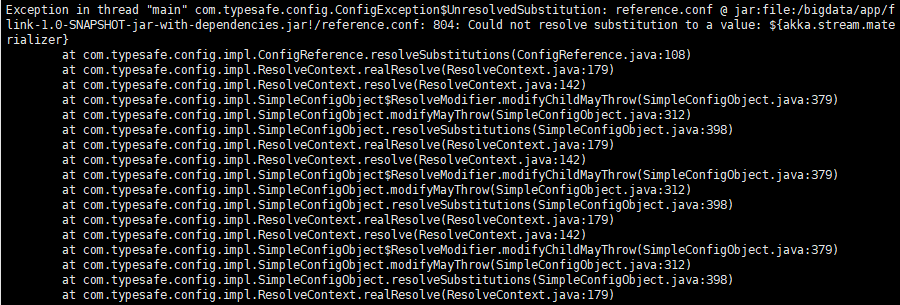NOTE ON PERFORMANCE Contrary to other bridging modules, namely jcl-over-slf4j and log4j-over-slf4j, which reimplement JCL and respectively log4j, the jul-to-slf4j module does not reimplement the java.util.logging because packages under the java. namespace cannot be replaced. In this tutorial, we're going to examine Lombok log annotations like @Slf4j, @Log4j or @Log. Use Log Annotations. Lombok provides several log annotations to work with different logging libraries.
Log4j 2 is broken up in an API and an implementation (core), where the API provides the interface that applications should code to. Strictly speaking Log4j core is only needed at runtime and not at compile time.
Declare a logging framework. Before you implement these loggers, you must declare the relevant framework as a dependency in your project. For more information, see the SLF4J user manual. The following sections provide configuration examples for common logging frameworks. Log4j to SLF4J Adapter. The Log4j 2 to SLF4J Adapter allows applications coded to the Log4j 2 API to be routed to SLF4J. Use of this adapter may cause some loss of performance as the Log4j 2 Messages must be formatted before they can be passed to SLF4J. The SLF4J Bridge must NOT be on the class path when this is in use. Hopefully a simple question but My google foo is failing me - I've got a maven project where we're using SLF4J with Log4J 1.2 bindings. We now want to move to Log4j 2 particularly for the performance improvement - however, I can't for the life of me find the maven dependency for the log4j 2.0 binding.
However, below we list Log4j core as a compile time dependency to improve the startup time for custom plugins as it provides an annotation processor that generates a metadata file to cache plugin information as well as the necessary code to compile against to create custom plugins.
Using Log4j in your Apache Maven build
To build with Apache Maven, add the dependencies listed below to your pom.xml file.
pom.xml
Using Log4j in your Apache Ivy build
To build with Apache Ivy, add the dependencies listed below to your ivy.xml file.
ivy.xml
Using Log4j in your Gradle build
To build with Gradle, add the dependencies listed below to your build.gradle file.
build.gradle
Using Log4j in your SBT build
To build with SBT, add the dependencies listed below to your build.sbt file.
build.sbt
Bill of Material
To keep your Log4j module versions in sync with each other, a BOM pom.xml file is provided for your convenience. To use this with Maven, add the dependency listed below to your pom.xml file. When you specify the version identifier in this section, you don’t have to specify the version in your <dependencies/> section.
pom.xml
To use this with Gradle, an additional Gradle plugin is required for dependency management functionality.
build.gradle
Optional Components
Log4j 2.x contains several optional components that can be included in an application.
Log4j 1.x API Bridge
If existing components use Log4j 1.x and you want to have this logging routed to Log4j 2, then remove any log4j 1.x dependencies and add the following.
pom.xml
ivy.xml
build.gradle
build.sbt
Apache Commons Logging Bridge
If existing components use Apache Commons Logging 1.x and you want to have this logging routed to Log4j 2, then add the following but do not remove any Commons Logging 1.x dependencies.
pom.xml
ivy.xml
build.gradle
build.sbt
SLF4J Bridge
If existing components use SLF4J and you want to have this logging routed to Log4j 2, then add the following but do not remove any SLF4J dependencies.
pom.xml
ivy.xml
build.gradle
build.sbt
JUL Adapter
If existing components use Java Util Logging and you want to have this logging routed to Log4j 2, then add the following.
pom.xml
ivy.xml
build.gradle
build.sbt
Web Servlet Support
In order to properly support and handle the ClassLoader environment and container lifecycle of a web application, an additional module is required. This module is only required at runtime. In addition, if you’re using servlets in an OSGi environment, make sure your preferred version of the servlet API is already available (e.g., if you want to use 3.0, but you’ve also got 2.5 loaded, make sure both are loaded).
pom.xml
ivy.xml
build.gradle
build.sbt
Tag Library
The Log4j Log Tag Library creates the capability of inserting log statements in JSPs without the use of Java scripting. It uses the standard Log4j 2 API to log messages according to your Log4j configuration.
pom.xml
ivy.xml
build.gradle
build.sbt
Apache Flume Appender
The Flume Appender allows applications to send events to Flume Agents.
pom.xml
ivy.xml
build.gradle
build.sbt
Log4j to SLF4J Adapter

The Log4j 2 to SLF4J Adapter allows applications coded to the Log4j 2 API to be routed to SLF4J. Use of this adapter may cause some loss of performance as the Log4j 2 Messages must be formatted before they can be passed to SLF4J. The SLF4J Bridge must NOT be on the class path when this is in use.
pom.xml
ivy.xml
build.gradle
Log4j-over-slf4j Maven
build.sbt
CouchDB
If your configuration uses the NoSQL CouchDB appender, then add the following.
pom.xml
ivy.xml
build.gradle
build.sbt
MongoDB
If your configuration uses the NoSQL MongoDB appender, then add the following.
pom.xml


ivy.xml
build.gradle All in one iso windows 7 8.1 10 download.
build.sbt
Cassandra
If your configuration uses the Cassandra appender, then add the following.
pom.xml
ivy.xml
build.gradle
build.sbt
IO Streams
Log4j IO Streams allow applications to have data that is written to an OutputStream or a Writer be redirected to a Logger, or have data that is read from an InputStream or a Reader be wiretapped by a Logger. To use IO Streams, add the following.
pom.xml
ivy.xml Patch mpt.
build.gradle
build.sbt

Scala API
A convenient Scala wrapper for the Logger API. SBT users can add the following to their build.sbt:
build.sbt
Maven, Ivy, and Gradle users need to add the Scala version to the artifact name.
Descargar mac os lion 10.7 dmg. Scala 2.12 users can use the following:
pom.xml
Log4j-over-slf4j-1.6.1.jar Maven Dependency
ivy.xml
build.gradle
Scala 2.11 users can use the following:
pom.xml
ivy.xml
build.gradle
Scala 2.10 users can use the following:
pom.xml
ivy.xml
build.gradle
Snapshot builds
You can access the latest development snapshot by using the Maven repository https://repository.apache.org/snapshots and the current SNAPSHOT version. Generally, the master branch will use the next patch version as its snapshot version regardless of what the next actual version of Log4j will be. For example, if the latest release were 2.0, then master would be using the version 2.0.1-SNAPSHOT. Always verify with pom.xml in the master branch as described in the source repository page.
Maven

Maven users can add the following to their pom.xml to enable snapshots:
Gradle
Gradle users can add the following to their build.gradle to enable snapshots:
SBT
Log4j-over-slf4j Maven Pom
SBT users can add the following to their build.sbt to enable snapshots:
